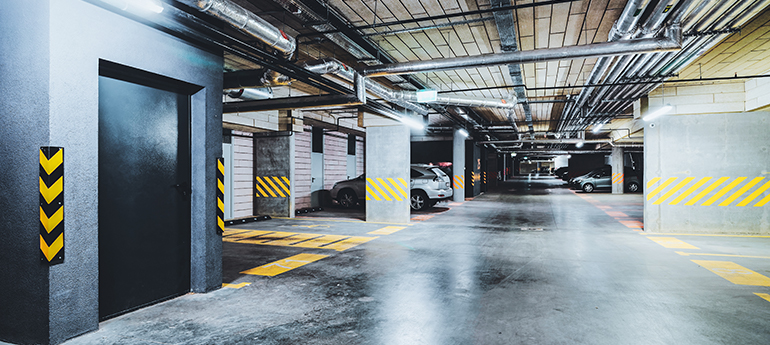The Future of the Parking Garage

It is no longer a matter of “if” driverless cars will be on the road, it’s a matter of “when.” And, that “when” is sooner than most people think. Some grocery stores in the Houston area are already delivering groceries to homes using autonomous vehicles and in June, METRO along with Texas Southern University (TSU), will launch Phase 1 of their first driverless vehicle dubbed Generation 2. It won’t be long before private autonomous vehicles hit the road. Personal mobility will have implications reaching beyond the automotive industry. Some speculate that the parking landscape in metro areas will be fundamentally restructured, which can lead to new challenges and opportunities for commercial real estate.
Theoretically, a driverless car will rarely need to park because it will drop off passengers at their destination, then drive off to pick up another passenger or collect your groceries. Street parking could be replaced with drop-off/pick-up zones, and parking garages could become “urban mobility hubs” where autonomous vehicles will refuel, recharge and undergo cleaning and maintenance. All this is still dependent on how many will actually use this new technology. We know it’s coming, but it will be a while before it becomes an actual way of life. Cell phones have been around for a couple of decades, but not everyone has given up their land line yet.
Almost 160,000 people work in Downtown Houston and roughly 60% drive to work. There are approximately 100,000 parking spaces in 42 existing properties classified as parking garages in the Central Business District, totaling 10,190,359 square feet.
With the population growth on the rise, it’s hard to imagine that parking areas will become obsolete. And, adaptive re-use of parking garages is much too costly. Some estimate it can cost as much as $90 to $100 per square foot. It would make more sense to tear it down.
It will be a gradual transition. It is likely to start with transforming street parking into mobility drop-off/pick-up spots, delivery zones, etc. Perhaps that will be the next “must have” amenity that tenants will be looking for. Parking lease clauses will be augmented with language providing for mobility usage that ensures building and garage access by autonomous electric vehicles. It will be interesting to see how developers, landlords, tenants and brokers will respond to this transportation revolution and what innovative solutions will emerge.
(Rand Stephens is a Principal of Avison Young and Managing Director of the company’s Houston office.)
